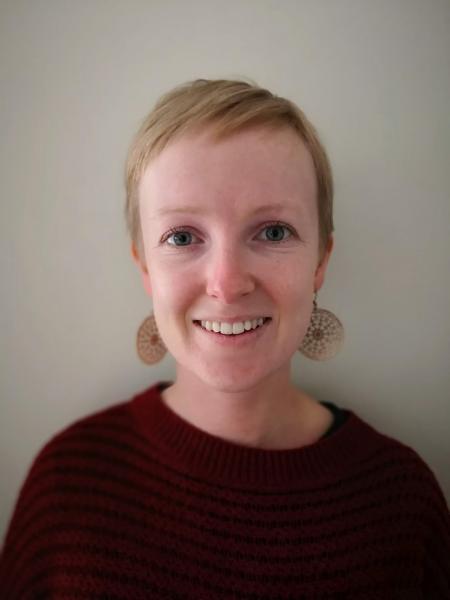This webinar was held on 28 February 2023. Watch the recording, see the presentation slides or read the transcript from the webinar.
About the webinar
In this webinar, legal researcher Sarah Croskery-Hewitt shares the findings of her report, Fighting or Facilitating Family Violence? Immigration Policy and Family Violence in New Zealand, published in February 2023. Sarah’s report identifies gaps in immigration policy in relation to family violence and provides an analysis of all Immigration & Protection Tribunal decisions concerning the ‘Victims of Family Violence’ visa category since 2010.
To assess how well immigration protections are functioning for migrant victims of family violence, it is vital to understand how the Immigration & Protection Tribunal is applying the ‘Victims of Family Violence’ visa policy. The Tribunal is typically the only appeal avenue for victims of family violence whose residence application has been declined and the Tribunal’s decisions guide Immigration New Zealand’s application of the visa policy. Unlike Immigration New Zealand, the Tribunal is also able to consider exceptions to the ‘Victims of Family Violence’ residence visa policy for victims who may not fit its restrictive criteria.
Sarah’s report provides an in-depth analysis of how the ‘Victims of Family Violence’ policy is being applied in practice, as well as commenting on the broader responsiveness of the immigration system to family violence. Based on her findings, she argues that policy reform and education across the immigration system is essential to ensure effective and accessible protections for migrant victims of family violence.
Sarah completed this research through a Borrin Foundation Community Law Fellowship. The programme enables lawyers working at Community Law Centres to pursue an inquiry or pioneer solutions to legal issues.
Background
Research and insight from victim-survivors and advocates has shown that immigration policies and practices can create barriers for migrant victims of family violence when accessing help. The UN Committee on the Elimination of Discrimination against Women has also raised concerns about the impacts of immigration settings on migrant victims of family violence in Aotearoa New Zealand. For an overview of the current policy and what policy and practice changes are needed, see our previous webinar, Rights and needs of migrant victim-survivors of family violence within immigration policies and practices and news story.
Speaker
 Sarah Croskery-Hewitt is a lawyer, who has previously worked with Community Law Wellington and Hutt Valley as a community lawyer and the National Law Reform Coordinator for Community Law Centres o Aotearoa. Her work with Community Law focused primarily on access to justice issues facing survivors of family and sexual violence, and establishing a specialist immigration law service for migrant women experiencing violence. She is one of the inaugural Borrin Foundation Community Law Fellows, and she is currently undertaking PhD research at the University of Wollongong on the use of intoxication evidence in sexual assault trials, an area of research in which she was previously awarded the Rex Mason Prize for Excellence in Legal Writing.
Sarah Croskery-Hewitt is a lawyer, who has previously worked with Community Law Wellington and Hutt Valley as a community lawyer and the National Law Reform Coordinator for Community Law Centres o Aotearoa. Her work with Community Law focused primarily on access to justice issues facing survivors of family and sexual violence, and establishing a specialist immigration law service for migrant women experiencing violence. She is one of the inaugural Borrin Foundation Community Law Fellows, and she is currently undertaking PhD research at the University of Wollongong on the use of intoxication evidence in sexual assault trials, an area of research in which she was previously awarded the Rex Mason Prize for Excellence in Legal Writing.
Resources
![]() Fighting or Facilitating Family Violence? Immigration Policy and Family Violence in New Zealand (2023) by Sarah Croskery-Hewitt; also see the Community Law Centres Aotearoa media release Family Violence Visa Needs Urgent Review On International Women’s Day Wednesday, 8 March 2023
Fighting or Facilitating Family Violence? Immigration Policy and Family Violence in New Zealand (2023) by Sarah Croskery-Hewitt; also see the Community Law Centres Aotearoa media release Family Violence Visa Needs Urgent Review On International Women’s Day Wednesday, 8 March 2023
![]() Recent Migrant Victims of Family Violence Project 2019: final report (2020) by Immigration New Zealand, Ministry of Business, Innovation & Employment; also see our related news story New report identifies barriers for migrant victims of family violence in immigration policies
Recent Migrant Victims of Family Violence Project 2019: final report (2020) by Immigration New Zealand, Ministry of Business, Innovation & Employment; also see our related news story New report identifies barriers for migrant victims of family violence in immigration policies
![]() Te Mahere Whai Mahi Wāhine Women’s Employment Action Plan (2022)
Te Mahere Whai Mahi Wāhine Women’s Employment Action Plan (2022)
![]() Inquiry into migrant exploitation, Report of the Education and Workforce Committee (2022)
Inquiry into migrant exploitation, Report of the Education and Workforce Committee (2022)
![]() Proposed Member's Bill Protecting Migrant Victims of Family Violence Bill, introduced by Jan Logie
Proposed Member's Bill Protecting Migrant Victims of Family Violence Bill, introduced by Jan Logie
![]() Living at the cutting edge: women's experiences of protection orders: Volume 1 the women's stories and Volume 2 : what's to be done? A critical analysis of statutory and practice approaches to domestic violence (2007)
Living at the cutting edge: women's experiences of protection orders: Volume 1 the women's stories and Volume 2 : what's to be done? A critical analysis of statutory and practice approaches to domestic violence (2007)


